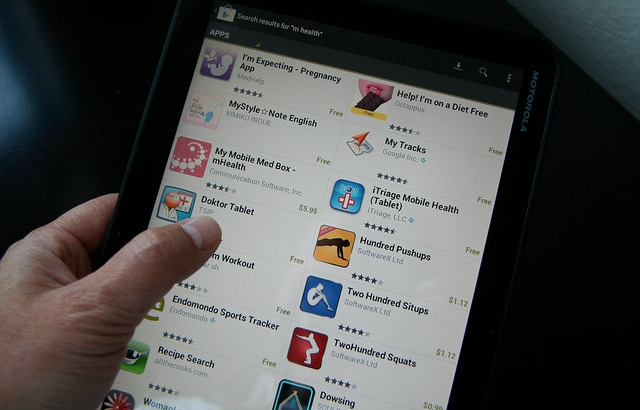Social media and health: a source of “patient voices” or just business?
Why does NHS and government policy neglect and ignore the value of online patient communities? QMUL researchers Dr Nelya Koteyko and Dr Daniel Hunt investigated this question as part of a major study on social media and living with chronic illness.

For many, smartphones and other web-enabled technologies have become ubiquitous, mediating activities from shopping to travel, from banking to romancing. From health apps to patient forums, the experience of being unwell has been similarly transformed.
Social networking sites (SNSs) such as Facebook and Twitter now host burgeoning networks for individuals with chronic conditions. The size and reach of these networks means they have the potential to influence health behaviours on a grand and disruptive scale.
The NHS has historically been slow to integrate new web technologies into routine care services. So while we use social media to communicate with friends, colleagues, companies, and politicians, healthcare professionals have typically remained beyond patients’ reach.
Implications
Recently, however, government and professional policies have begun to address social media and their implications for healthcare. There are good reasons for doing so: SNSs multiply opportunities for communication between professionals, policy makers, patients, and the wider public. They can enable the government to gather feedback from service users and publicise health information, foster professional networks and patient communities, and facilitate online consultations.
Inevitably, policy and NHS activity have focused on some of these opportunities more than others. Policy papers from the Department of Health and NHS England have embedded plans for social media within a digital information strategy focused on publishing data on NHS services, increasing patient choice, and gathering business-relevant “insight.” Social media have been positioned as a way to facilitate consumer choice, helping to shift healthcare towards consumer models serving not just patients but also “clients,” “customers” and a supposed “social networking generation.”
As members of the latter, we are said to uniformly demand greater knowledge of service options so we can make better choices. While the permeation of such consumerist thinking into healthcare policy predates the Web 2.0 era, social media have nevertheless been configured as a new vehicle for delivering consumerist policies based around increased choice, “patient empowerment” and patient responsibility. To this end, rather than providing or commissioning online services, the Department of Health’s The Power of Information paper commits to “stimulating a market” and creating “space to innovate” for non-NHS organisations.
At the same time, the Department’s publications have largely overlooked social media’s potential to support therapeutic interactions between healthcare providers and service users. In some ways, this should be surprising. While claiming to address the demands of the “social networking generation,” recent policies neglect a significant reason why many individuals with chronic conditions already use SNSs —interacting with others with the same conditions through blogging, tweeting, reading, viewing, liking, sharing, and creating health-related content and using this to assist in their own self-care.
Indeed, beyond a few papers by the NHS Confederation, the potential of social media to promote peer-support has remained a peripheral concern, despite examples of health professionals and organisations already using sites to support patients.
Understandable caution
In other ways, the government’s caution around social media is less surprising; determining how to pay for digital healthcare is complicated and remote consultations can be fraught with practical difficulties. Similarly, concerns around patient confidentiality are magnified by the corporate ownership of social media sites.
For policy makers, managing these risks means limiting the government’s use of dynamic, flexible platforms to the less precarious tasks of disseminating information and sourcing patient feedback while letting the market meet remaining demand.
Yet, falling behind public and patient trends is also risky. Multiple competing sources of information that do not carry the credentials of a site like NHS Choices could create uncertainty over whose information to trust.
By promoting third-sector and commercial social media organisations as providers of online services, policy is also encouraging the public into a digital health economy in which the users’ online contributions are routinely commodified and exploited for commercial ends. This can include generating research data and refining consumer-driven advertising for third party products but may also involve the sale of user-generated information to other businesses.
By retreating from providing care through social media, the government both misses opportunities and devolves risks onto the public and non-government organisations. Crucially, without a change in policy and working practices to reflect how the public use new media, our healthcare professionals will remain out of the loop with emerging patient practices.
About the authors
Daniel Hunt is a research associate on the “Chronic illness and online social networking: Expectations, assumptions and everyday realities” project at Queen Mary University of London, which examines the impacts of social networking technologies on the lives of individuals with chronic conditions.
Nelya Koteyko is a reader in Applied Linguistics at Queen Mary University of London and Principal Investigator on the project “Chronic illness and online social networking: Expectations, assumptions and everyday realities” funded by the Economic and Social Research Council (grant number ES/K005103/1).
Related items

28 July 2025

23 July 2025
For media information, contact:
